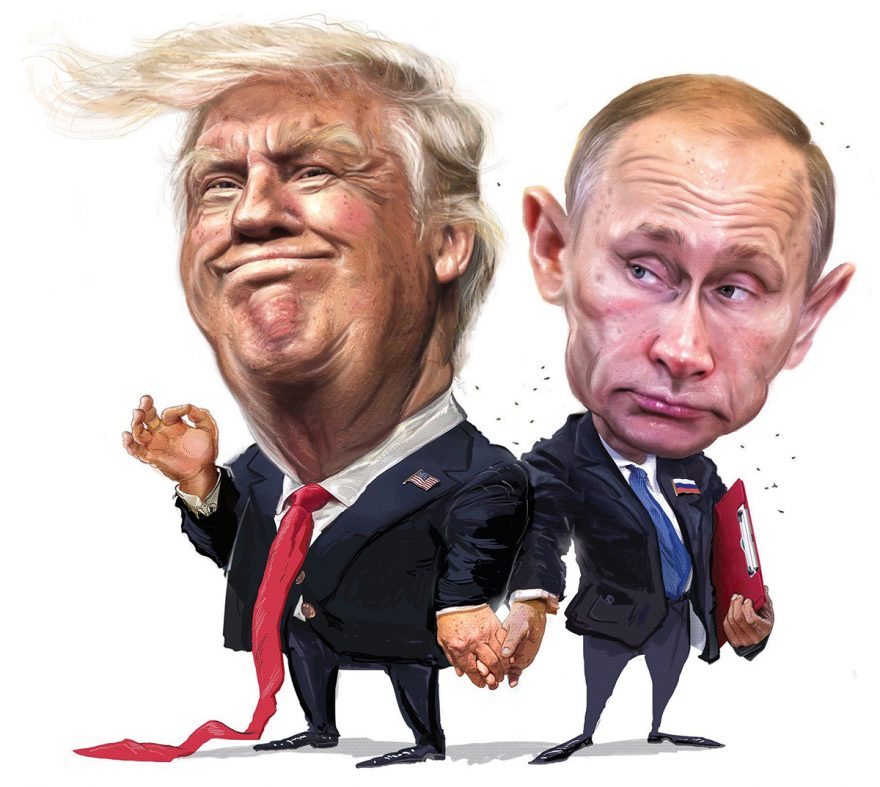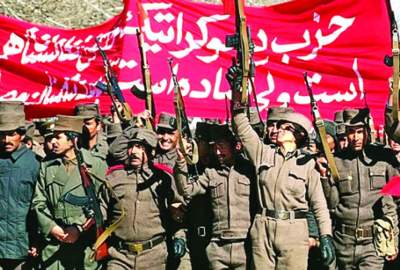Comparing the Russian and the American wars in Afghanistan, the earlier in the 1980s and the later in post-2001 till to date, both experienced a testament to the inherent weaknesses towards a guerrilla fighting, and moreover the minimal operational impact which advanced technology has failed to win on that type of warship. Politically, their inability to win Afghan wars, occurring into two separate times and conditions, made scholars of International Relations rethink about America and Russia (the latter, formerly as USSR) being as the great powers.
Publish dateMonday 13 July 2020 - 16:59
Story Code : 214467
Though with different ideological approaches of high currency in the overall history of world politics, the US with Democracy and USSR with Communism, but both found to be foreign invaders in Afghanistan, especially in parts with the groups that were/are fighting against the foreign political concepts. A common understanding that no country, particularly Afghanistan as its history suggests, wants to be occupied by a foreign military. America’s approaches to Afghanistan proven to be a failing strategy even though it is a multilateral one. In fact, the US military campaign in Afghanistan is not a mere American one, it is along with multinational forces that include the EU countries, Canada, Australia, Turkey and many other NATO and non-NATO allied states. On the contrary, the Soviet Union fought almost a decade alone in Afghanistan. Generally, the outcome of both seems to be similar by the fact that both Russians and Americans could not win their war in Afghanistan and consequently they both land-up to the decision to withdraw their troops from the country. Like the Soviet Union, America is also pursuing an exit strategy on its Foreign Policy towards Afghanistan. But, Americans took almost two decades of military struggle along with the NATO Forces in Afghanistan and finally reached to what Soviets had taken less than a decade to reach for the same decision – the withdrawal strategy.
To compare and contrast, politically saying, the Soviets’ approach of Afghanistan was worse than that of Americans; the earlier was exclusively counter-insurgency warfare whereas the later in a way let the country and the people speak for themselves as well. Militarily speaking, the Taliban are not being supplied with advanced weapons such as the Stinger Missiles that were provided for Mujahiddine as part of the US military aid to the Afghan resistance groups fighting against Soviets. Indeed, it was an extreme level of Washington’s reaction against the Soviet invasion of Afghanistan. By and large, acquirement of advanced weapons like “Stinger” had provided Afghan resistance groups confidence that they could beat a superpower.
In fact, both Russians and Americans started with the limited but well-defined objectives in Afghanistan, however, they have gone into a much longer and major warfare which was not initially envisaged. The lesson learned from Afghanistan by Russia and America is very common in its nature. Saying briefly, it is very difficult and costly, if not impossible, to win the war in Afghanistan militarily.
Generally, during the decades of warship and contention in Afghanistan, it is majorly understood by the global powers that there is no military gain but the political and economic loss in their military struggles fighting for the ideologies to export in the country or perhaps for their larger goals to have a better share in overall global politics. As a result, it can be concluded that now America and Russia have reached a consensus that a secure and stable Afghanistan is in favor of one and all. For instance, America and Russia have recently agreed on not to accept or support the restoration of Taliban regime what is so-called “Islamic Emirate of Afghanistan”, expressed in a joint statement just a week after the US-Taliban peace deal was inked in February. Hence, it is a great chance for Afghanistan to find out the scope in adapting itself to the situation, and in particular, to achieve its long-lasting goal – peace and prosperity. Despite the fact that still, one can see a kind of “blame game” happening between Washington and Moscow on each other’s approaches towards Afghanistan’s ongoing peace process, but generally not only the region but also the world community reached to a common understanding on a peaceful and stable Afghanistan.
Summing up, the history taught us that Afghanistan could neither adapted itself with the imported ideology of Communism by Russians, nor it can do so towards the module of Democracy which is existed in Western countries, as it is assessed. But, Afghanistan would be able to live in peace and prosperity by adopting a moderate Islam, internally, and by a balanced Foreign Policy approaches between West and East, externally. By a moderate Islam, indeed Afghanistan can be in harmony both with its people, inside and with the world, outside.
To compare and contrast, politically saying, the Soviets’ approach of Afghanistan was worse than that of Americans; the earlier was exclusively counter-insurgency warfare whereas the later in a way let the country and the people speak for themselves as well. Militarily speaking, the Taliban are not being supplied with advanced weapons such as the Stinger Missiles that were provided for Mujahiddine as part of the US military aid to the Afghan resistance groups fighting against Soviets. Indeed, it was an extreme level of Washington’s reaction against the Soviet invasion of Afghanistan. By and large, acquirement of advanced weapons like “Stinger” had provided Afghan resistance groups confidence that they could beat a superpower.
In fact, both Russians and Americans started with the limited but well-defined objectives in Afghanistan, however, they have gone into a much longer and major warfare which was not initially envisaged. The lesson learned from Afghanistan by Russia and America is very common in its nature. Saying briefly, it is very difficult and costly, if not impossible, to win the war in Afghanistan militarily.
Generally, during the decades of warship and contention in Afghanistan, it is majorly understood by the global powers that there is no military gain but the political and economic loss in their military struggles fighting for the ideologies to export in the country or perhaps for their larger goals to have a better share in overall global politics. As a result, it can be concluded that now America and Russia have reached a consensus that a secure and stable Afghanistan is in favor of one and all. For instance, America and Russia have recently agreed on not to accept or support the restoration of Taliban regime what is so-called “Islamic Emirate of Afghanistan”, expressed in a joint statement just a week after the US-Taliban peace deal was inked in February. Hence, it is a great chance for Afghanistan to find out the scope in adapting itself to the situation, and in particular, to achieve its long-lasting goal – peace and prosperity. Despite the fact that still, one can see a kind of “blame game” happening between Washington and Moscow on each other’s approaches towards Afghanistan’s ongoing peace process, but generally not only the region but also the world community reached to a common understanding on a peaceful and stable Afghanistan.
Summing up, the history taught us that Afghanistan could neither adapted itself with the imported ideology of Communism by Russians, nor it can do so towards the module of Democracy which is existed in Western countries, as it is assessed. But, Afghanistan would be able to live in peace and prosperity by adopting a moderate Islam, internally, and by a balanced Foreign Policy approaches between West and East, externally. By a moderate Islam, indeed Afghanistan can be in harmony both with its people, inside and with the world, outside.
Source : Afghan Voce Agency(AVA)
avapress.com/vdcd9o0x5yt0fo6.em2y.html
Tags
Top hits







